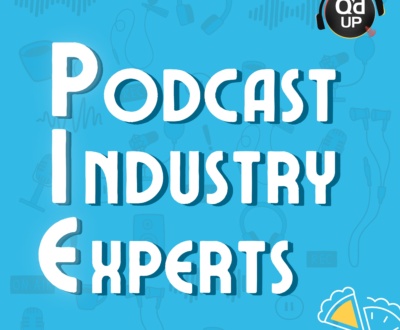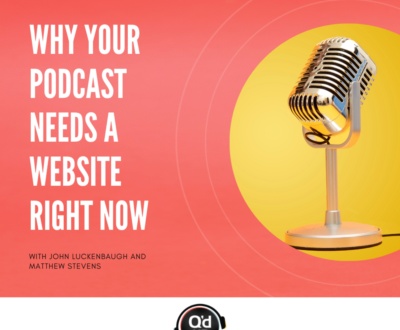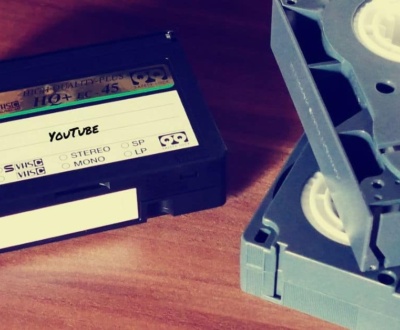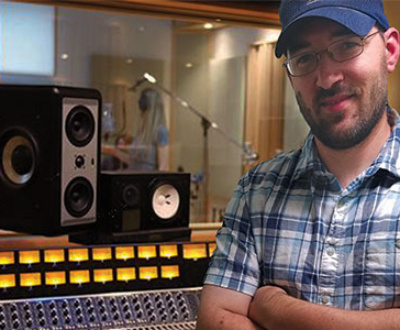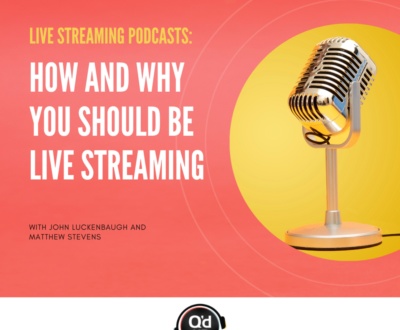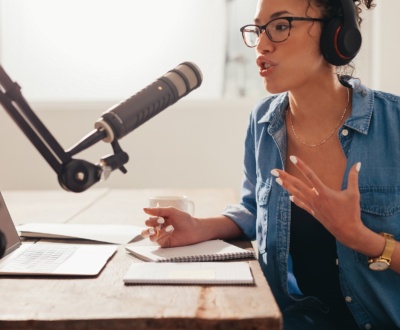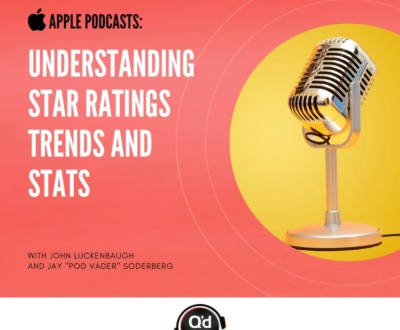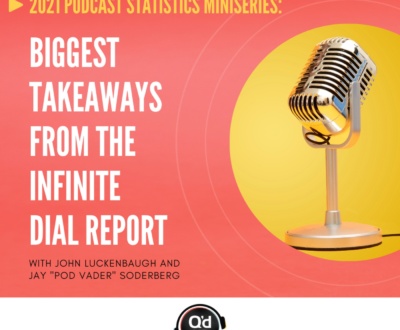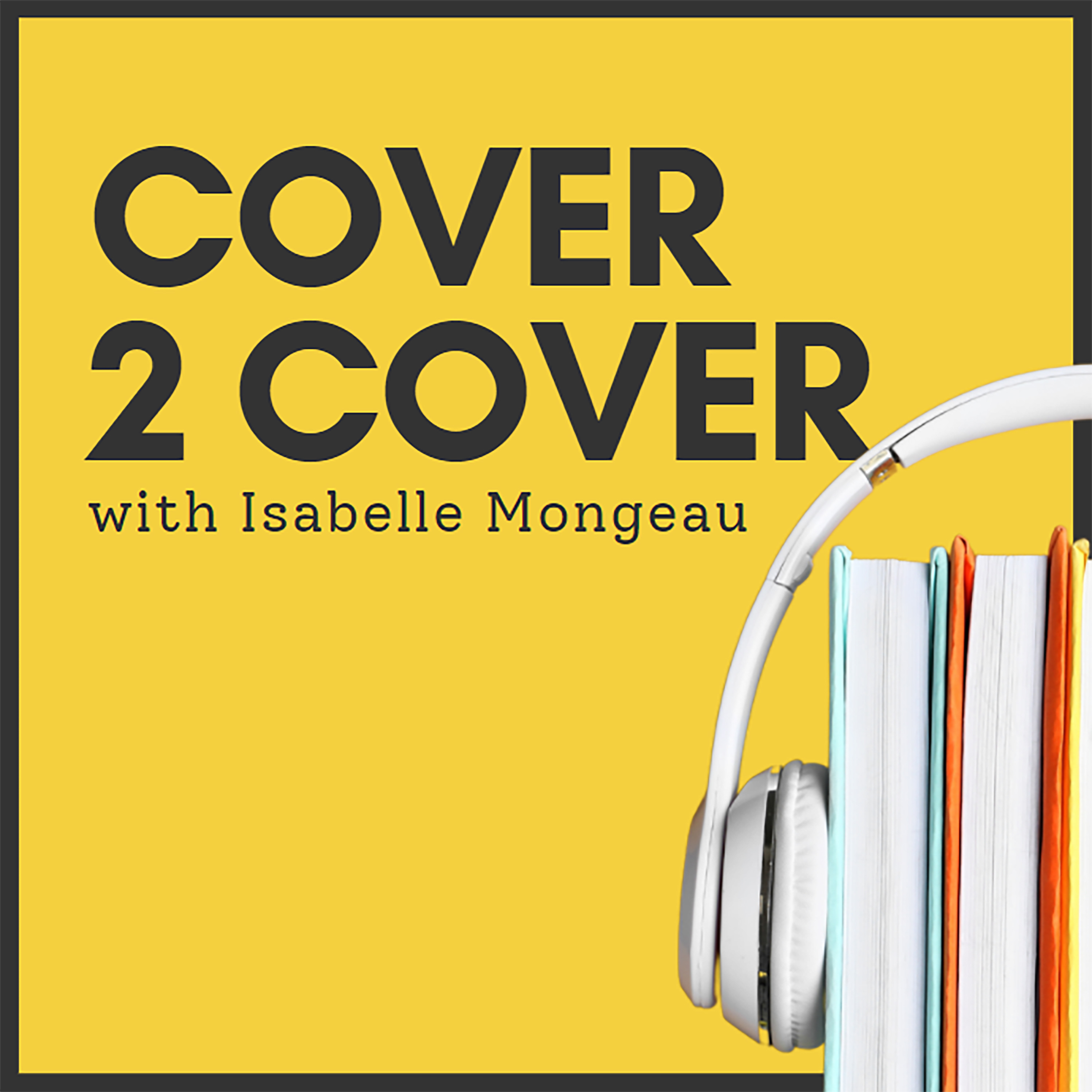
With your audiobook written, recorded, and mastered to perfection; you have a choice to make: To be exclusive to one platform or not. On this episode of Cover 2 Cover, host Isabelle Mongeau takes you through the world of audiobook distribution and exclusive contracts.
As an audiobook writer, you’re going to need to interact with ACX (Amazon and Audible’s audiobook platform) at some point. When signing up for an audiobook distribution account, you’ll have two options: exclusive and non-exclusive. With dramatically different royalty rates, it might seem like the choice is obvious but there’s a lot to think about. So, should you limit where your book can be found in exchange for a larger slice of the pie or should you “go wide” to be found easier? That’s the question Isabelle poses on this episode of Cover 2 Cover.
Audiobook Distribution:
Follow Q’d Up:
Q’d Up – Audiobook Distribution
Listen to Cover 2 Cover:
Episode transcript:
The doorbell rings. You swing open the door to see Claire standing on your step, a bottle of wine in hand. She grins at you.
“Come in, come in!” you say.
She tells you about her week as you enter the kitchen, water bubbling on the stove. You open a jar of pasta sauce to heat up – it’s Friday and all you two wanted to do was drink wine and have some pasta.
Claire sets the bottle down on the counter. “So, my audiobook is done.”
“Yeah?” You smile and dig out the wine opener.
“Yeah. I’m just figuring out some logistics before it’s published.”
“Like what?”
“Well, whether I want to go exclusive or not. I’m really torn and not sure what to do.”
You stare at Claire. You’re still working on your audiobook and haven’t reached that stage yet.
“Exclusive or not?” you ask. “What does that mean?”
Hi and Welcome to Cover 2 Cover, a biweekly podcast that teaches you how to write, produce and market your audiobook. I’m your host, Isabelle Mongeau from Q’d Up Audio and today I want to talk about audiobook exclusivity with Audible. in this episode, we’ll explore a little bit more about what that actually means and weigh the pros and cons so that you as an author can make an informed decision.
So, what do we mean by exclusive?
First, let’s take a look at Amazon’s audiobook platform: Audible. Audible’s audiobook publishing platform, which produces and sells books, is known as Audiobook Creation Exchange, or ACX. Through ACX, authors can have their audiobooks distributed to Audible, Amazon and iTunes. There’s some more nuance to this, which we’re going to get into.
So, how does this relate to exclusivity?
Well, as ACX is the dominate marketplace for audiobook creation, most authors will find that they interact with ACX at some point. ACX has two types of distribution contracts: exclusive and non-exclusive.
If an author chooses exclusivity with ACX, then their audiobook will be distributed to Audible, Amazon and iTunes only. If you go the non-exclusive route, — otherwise known as “going wide” – you can distribute to more channels. However, you will have a significantly lower royalty rate.
Needless to say, it’s a tough decision to make.
You pour a glass of wine. “Say that again?” you ask.
Claire rubs her temple. “If I choose ACX exclusive, then I will earn a 40% royalty on every book I sell.”
“Wow, that’s high.”
“Yup.” Claire says. “Highest royalty in the publishing industry…”
“But?” you ask.
“But it means that’s my audiobook will only be available on Audible, Amazon and iTunes.”
You think for a moment. “So your book won’t be available on Libro.fm or Libby? Apps like that?”
“Exactly. But if I choose non-exclusive, it would be. only thing is that my royalty would be 25%.”
“So, if you choose ACX exclusive, you’ll earn more on each book, but your book won’t be available on every platform. If you make it available on other platforms, you’ll only earn 25%.”
Claire sips her wine. “There’s more. It gets a bit complicated.”
As we’ve discussed in previous episodes, the audiobook market is growing, and with it, Audible. A behemoth of a brand, Audible makes up about 41% of all audiobook sales, according to Codex Group Research. Combined with purchases on Amazon.com, and they dominate almost 2/3rd of the entire audiobook market. In some verticals, Audible controls about 90% of the audiobook space.
That’s…a lot.
So, if you choose ACX exclusive, you still have access to a large part of the audiobook market. You’ll earn 40% on royalties, which is the highest royalty in traditional publishing. Not a bad deal.
However, ACX exclusive does have some limitations. ACX sets the price of your book. This is a huge factor to consider – especially if ACX decides that your book is only worth a few dollars. That 40% royalties could look like $1. It could look like less. Either way, the choice is not up to you.
While Audible, Amazon and iTunes make up a large percentage of the audiobook market, it is not the entire market. If you want to sell your book through a personal website, you will only be able to by going non-exclusive. As mentioned, other apps like Libby or Libro.fm will not carry your book. Though they may not be as huge of an influence as Audible, they are an ethical alternative – as they support local libraries and independent bookstores when readers purchase audiobooks through their platform.
ACX exclusive, on the other hand, does not distribute to libraries or bookstores. Libraries are a great way to rack up some royalties for authors. They can also spur word-of-mouth advertisement. For example, they could single out new books, their favorite books, or books relevant to the current times. Like staff picks in a bookstore, this visibility can be especially important in boosting the reputation of your book.
While Audible does not explicitly delve into how they provide royalties, some authors have posted about the 40% and 25% pay out being not exactly true. One blog explained how Audible pays authors on “Net Sales” not individual sales of books, which is easier to manipulate through lowering the price of your book at any given time. Although I can’t confirm this with the Audible site, it’s important to keep in mind that you may not receive the same 40% or 25% of every book bought, if the price keeps fluctuating.
Additionally, if you choose to do a “royalty share” or “pay-for-production” option in your contract, that 40 or 25% will drastically change. I dont say this to scare you – more to say that the royalty percentages aren’t the only factor to consider.
There’s a lot to unpack here, and we will continue to explore this topic throughout our show. For now, though, it’s important to understand the basics of the decision to go exclusive or not.
You sprinkle parmesan cheese on top of the pasta. Claire grabs the plates, you the wine, and you both sit down at the table. You dig into your meal, the taste of butter and cheese on your tongue. Claire finishes chewing.
“What do you think I should do?” she asks.
“They both have pros and cons,” you say.
She nods. “The royalty is higher on one but there’s more limitations. With non-exclusive, you can sell through other avenues, but the pay is lower. Even then, I need to take those numbers with a grain of salt.”
You set your fork down. “I think it comes down to what you want as a writer. Do you want to sell on your site? Do you want to support local bookstores and libraries? Or do you want to potentially maximize the earnings you make through one platform? I don’t think one is necessarily better than the other. It’s more about what’s best for you.”
Claire sips her wine. “I think you’re right.”
Request a free quote
We offer high-quality production, distribution, and marketing for podcasts and audiobooks. Contact us today for a free, no obligation quote

